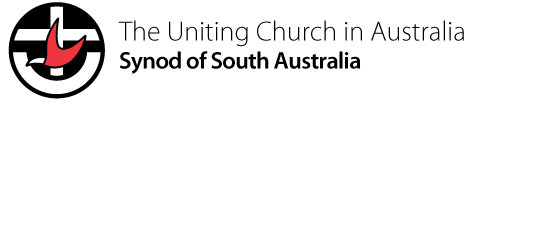Grievance Policy
Policy Scope
Councils of Synod: Employees as defined here>
Location/site: All locations of the Councils of Synod as defined here>
Congregations: Are encouraged to adopt/adapt this policy for their work environments for specified ministries, employees and volunteers as defined here>
Policy Statement
Uniting Church SA is committed to fostering a positive and productive workplace and acknowledges that problems can arise at work that may cause personnel to feel aggrieved.
This policy provides an equitable process that personnel can use to address grievances, such as:
- any action, or inaction, by other personnel in the workplace
- any employment related decision or behaviour
- application of disciplinary procedure
- discrimination *
- harassment *
Awards often provide dispute resolution procedures. Nothing contained in this policy will affect the rights of any party to attempt to resolve a grievance under those provisions where employees are employed under an Award.
Personnel who believe something is unfair, unjust or upsetting in relation to a work related matter have the following options available to them:
- Speak to the person causing the problem and inform them they consider their behaviour, decision, action or inaction to be unfair, offensive or discriminatory, and why they believe this to be so.
- Speak to their direct reporting manager (or supervisor) , or if that is not appropriate they can speak to their Executive Officer about their grievance. With the aggrieved person’s approval, the manager/supervisor may approach the person or persons involved in the identified issue and talk to them informally about the particular grievance.
- Make a formal complaint, in writing, to their manager/supervisor in accordance with the procedure below.
All complaints will be treated seriously and principles of natural justice will apply.
Uniting Church SA will generally address such grievances internally and each complaint will be addressed as soon as possible, subject to the individual circumstances of the case. All parties may have representation and/or support during the resolution process.
Personnel have the right to expect that their grievance will be treated as confidentially as possible. However to ensure that an adequate and fair investigation to takes place, the details of their complaint may require discussions with those alleged to have been the cause of the grievance and their representatives, and with the appropriate management.
No personnel involved in the grievance process will unreasonably disclose the details of the grievance, the investigation or the outcome. If personnel are found to have breached confidentiality, appropriate disciplinary action may be taken.
Personnel will not be victimised as a result of raising a genuine grievance. However, Uniting Church SA reserves the right to take action against personnel who engage in making false or misleading accusations.
Managers/Supervisors who observe conflict, discrimination or harassment must take reasonable steps to intervene and work with personnel towards resolution.
Procedure
Personnel who choose to make a formal complaint in writing to their manager/supervisor or other appropriate person, must document the:
- nature of the grievance
- time and date of the incident(s) giving rise to the grievance
- names and signatures of any witnesses
- date of the lodgement of the grievance, and
- the complaint must be signed by the aggrieved person
Once a formal complaint is made, the matter will be investigated by the manager/supervisor. If a manager/supervisor is named as a party to the grievance, the Executive Officer, Resources will nominate the person responsible for the investigation (“investigator”).
If a grievance is substantiated following an investigation, the investigator will advise all involved of the remedial or corrective action to be taken.
If the grievance is not substantiated, the complainant will be given an explanation as to the specific details of why that finding was made.
If the complainant is not satisfied with the way in which their grievance was handled, or disagrees with the outcome, they may refer the matter to the CEO/General Secretary.
If the grievance is of an industrial nature and remains unresolved, the complainant may seek to have the matter referred to the Fair Work Commission.
Personnel may seek the assistance of an agent or the Office of the Employee Ombudsman.
Without prejudice to either party, work should continue as normal whilst the matter in dispute is being investigated with in accordance with this policy.
Related Policies
- Uniting Church SA Equal Opportunity Policy
- Uniting Church SA Work Place Harassment & Bullying Policy
- Uniting Church SA Sexual Harassment Policy
References
- Work, Health & Safety Act 2009
- Fair Work Act 2009
Executive Officer, Resources
< Back to Workplace Policies